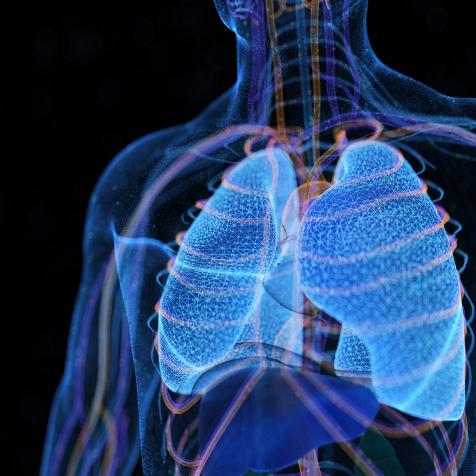
Curiosity Daily Podcast: Blame Evolution for Back Pain, Showing Off Your Status Doesn’t Make Friends, and Make Babies Smarter by Pretending to Understand Them
Learn about why signaling your status makes it harder to make new friends; the evolutionary reason why humans have so much back pain; and how pretending to understand babies can make them smarter.
September 14, 2020
Episode Show Notes:
Signaling your status makes it harder to make new friends by Steffie Drucker
- Forget the bling: High status-signaling deters new friendships. (2018, August). EurekAlert! https://www.eurekalert.org/pub_releases/2018-08/sfpa-ftb081518.php
- Garcia, S. M., Weaver, K., & Chen, P. (2018). The Status Signals Paradox. Social Psychological and Personality Science, 10(5), 690–696. https://doi.org/10.1177/1948550618783712
- Pinsker, J. (2018, September 27). The Misconceptions People Have About Luxury Purchases. The Atlantic; The Atlantic. https://www.theatlantic.com/family/archive/2018/09/buying-luxury-goods-value/571525/
Why do humans have so much back pain? Thank evolution by Grant Currin
- Human Evolution: Gain Came With Pain. (2013, February 16). Human Evolution: Gain Came With Pain. Science | AAAS. https://www.sciencemag.org/news/2013/02/human-evolution-gain-came-pain#
- Your back pain may be due to evolution and spine shape. (2020). EurekAlert! https://www.eurekalert.org/pub_releases/2020-03/sfu-ybp030420.php
- Plomp, K. A., Viðarsdóttir, U. S., Weston, D. A., Dobney, K., & Collard, M. (2015). The ancestral shape hypothesis: an evolutionary explanation for the occurrence of intervertebral disc herniation in humans. BMC Evolutionary Biology, 15(1). https://doi.org/10.1186/s12862-015-0336-y
- Plomp, K. A., Dobney, K., Weston, D. A., Strand Viðarsdóttir, U., & Collard, M. (2019). 3D shape analyses of extant primate and fossil hominin vertebrae support the ancestral shape hypothesis for intervertebral disc herniation. BMC Evolutionary Biology, 19(1). https://doi.org/10.1186/s12862-019-1550-9
- Plomp, K. A., Dobney, K., & Collard, M. (2020). Spondylolysis and spinal adaptations for bipedalism. Evolution, Medicine, and Public Health, 2020(1), 35–44. https://doi.org/10.1093/emph/eoaa003
- Spondylolysis. (2020). https://www.hopkinsmedicine.org/health/conditions-and-diseases/spondylolysis
Keep Pretending To Understand Babies—It Makes Them Smarter by Anna Todd
Subscribe to Curiosity Daily to learn something new every day with Cody Gough and Ashley Hamer. You can also listen to our podcast as part of your Alexa Flash Briefing; Amazon smart speakers users, click/tap “enable” here: https://curiosity.im/podcast-flash-briefing
Next Up
Curiosity Daily Podcast: A Pill Made from Poop, Universal Organs, Soothing Baby Pain
Today, you’ll learn about an interesting way pills made from poop could help millions of people with allergies, how researchers edited the contents of a pair of donor lungs to better match the recipient, and how pain can affect a baby’s development, and what parents can do about it.
Curiosity Daily Podcast: Smartphones Impair You Even When They’re Off, Eco-Friendly Laundry, and How Babies Laugh
Learn about how smartphones hurt your mental performance even when they’re off; how babies and adults laugh differently; and, a simple change you can make to your laundry routine to cut down on pollution.
Curiosity Daily Podcast: Types of Psychotherapy, Your Urge to Nibble Baby Feet, and Why Animals Don’t Have 3 Legs
Learn about why your urge to nibble on baby feet is totally normal; why there are no animals with three legs; and, the different types of psychotherapy and why they work even when you feel like they don’t.
Curiosity Daily Podcast: Your Brain on Books vs. Podcasts, How Hard Babies Kick in the Womb, and Fart Humor History
Learn about why scientists measured how hard babies kick in the womb; the difference in brain scans between people when they were reading a book versus listening to a podcast; and how long humans have thought farts were funny.
Curiosity Daily Podcast: Meteorites Probably Don’t Land Hot, Break-Up Struggles, and Why Babies Hardly Ever Blink
Learn about why meteorites probably aren’t hot when they land; why babies hardly ever blink; and why couples have such a hard time breaking up.
Curiosity Daily Podcast: Geckos & Skin Cancer, Music in Childhood, Underwater Camera
Today we discuss the connection between skin cancer and a leopard gecko named Mr. Frosty, how playing a musical instrument in childhood can affect brain function as we age, and how a new underwater camera can help us explore previously-unseen parts of the ocean.
Curiosity Daily Podcast: Why Do Wombats Poop Cubes?
Learn about a newly discovered way to cut down on intrusive thoughts; why wombats poop cubes; and why UPS trucks almost never make left turns.
Curiosity Daily Podcast: Introducing If/Then
What gets you curious? Virtual experiences, celestial bodies, water worlds or maybe just the tiniest mysteries inside your brain? The endlessly curious and curiously funny, Gillian Jacobs (Community, Netflix's LOVE) and Diona Reasonover (NCIS), step off set to go on tangents with real-life astronauts, astrophysicists, science artists, mathematician-types and other really smart people that investigate what seems impossible.
Curiosity Daily Podcast: Accent-Changing Monkeys and the Information “Dataome”
Learn about why monkeys imitate other species’ accents; and the “dataome,” a new way to think about information.
Curiosity Daily Podcast: The Curiosity Podcast Wraps Up with Yoga, Volcanoes, and Meditation
Learn from some of our favorite expert guests about yoga, volcanoes, meditation, and more on this special episode of the Curiosity Podcast. You'll hear from accomplished authors and academics from past episodes, in addition to a special guest you've never heard before on the show. Plus, hear about the past, present, and future of the Curiosity Podcast.










